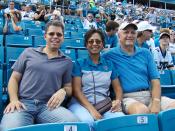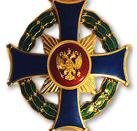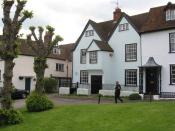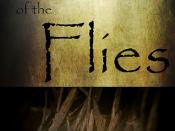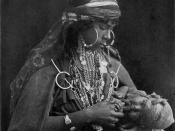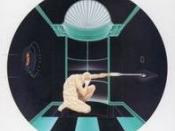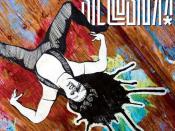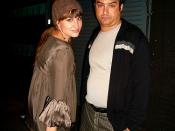When thunder strikes, who does a child run to? When a child loses a game, who is their emotional support? In times of danger or unhappiness, a child will always run to a parental figure. The parents are the safety zone for a child. So why does civilization cease to exist once the "safety zone" is no longer in the picture? Without parents there is no leadership, nor knowledge of how to lead a civilized life. The only emotion left is fear, which takes over the children, along with their decisions. It is these three problems which cause children - such as the boys in The Lord of the Flies by William Golding -- to become uncivilized when there is a lack of parental figures. First, leadership is one of the most important aspects of a good civilization.
Unfortunately, without parents, leadership does not exist. One of the main reasons why a group of children will never be civilized is because children do not know how to be leaders.
In the book, none of the boys have knowledge of leadership. (cite) The children feel that they are all equal to one another. They do not know or have the skills one needs to be a leader. Before reaching the island, the parents were their leaders; they told the boys what to do, how to do it and when it should be done. Now without them, there is no one knowledgeable who can lead the boys into civilization. The boys' only other option is to become uncivilized - a way of life that comes naturally to young boys with no boundaries. Children cannot lead a civilized life without adults who have the knowledge to show the children exactly what a civilized life is like. Also, peers are not respected as leaders. The boys do not respect each other as leaders. (cite) All of the boys see one another as their equal. They do not want someone, who they believe is just as equal as them, ordering them to accomplish chores. Peers are not respected because they are not generous enough to give up their freedom to one of their equals. However, the children realize that adults create consequences for their bad behavior. Therefore, they do not view them as their equal and do respect the orders they are given. Also, children do not elect leaders accurately. In the story, the boys on the island vote for Ralph spontaneously. The boys announce, "Let him be chief with the trumpet-thing." (Golding Pg.20) They do not put thought into their vote. They elect Ralph for one reason -because he has the conch. They did not sit through grueling speeches to hear each candidate's point of views. None of the boys thought about their future or who they were electing to control it. Children see elections as popularity contests. They do not understand that they must choose the person who will accomplish the most and help to contribute to a more civilized life. With parents, the best man for the job is chosen, a true leader: An adult's election is not just another "I have the most friends" competition. It is clear that every civilization must have a leader. However the only true leaders are adults. Therefore, when adults are absent, children turn uncivilized because they have no consequences to face. Besides, children do not have the knowledge to lead a group into civilization, even if they are elected leader.
Children do not understand how to lead a civilized life, nor do not understand the importance of one. The boys do not find it important to live in a civilized manner. Jack begins to wear face paint, explaining, "(It's) For hunting. Like in the war. You know--dazzle paint." (Golding, PG.68) Wearing face paint is uncivilized, yet the boys enjoy wearing it. The only project the boys are concerned about is hunting. Building a rescue fire or shelter never passes through their mind. Besides Ralph, none of the boys understand why it is necessary and therefore resort to easier ways of living: hunting and sleeping in the sand. The boys do not have parents to explain that a rescue fire is their only way of leaving the island, and shelters are the only way to protect themselves from the natural elements. Children do not know the meaning of civilization. Therefore, naturally they become uncivilized because they do not have parents to look ahead into the future and show them the importance of a civilized life. Also, children do not know what is needed or necessary to live a prominent life. The boys do not see the importance of a rescue fire. They do not put the fire before the rest of their work. Jack says, "The fire's only been out an hour or two. We can light up again--". (Golding, PG.76) The boys do not understand why one is necessary and therefore dismiss it from their mind. They do not see into the future to realize that without one, there only future is the island. In a civilized life with parents, children have every necessary object already laid out for them, provided by their parents. They do not have to worry about where they will sleep at night or what they will have for dinner. They just grab a carbohydrate-filled snack, and then crawl into bed. When dropped off on a deserted island, they no longer have the essentials they need, and do not know how to create them in order to be civilized because in the past the essentials were always just there for them. Also, children are not aware of true danger. The boys do not realize the seriousness of their situation. Jack says, "Look! We've killed a pig--we stole up on them--we got in a circle--." (Golding, PG. 74) The boys hunt without worrying if they will be attacked by an unknown tiger lurking in the jungle. They never stop to think that their fate will be death if a boat does not happen to sail by. Children do not understand the trouble they create for themselves; they stretch their boundaries as far as they will go before snapping, without ever thinking of the danger involved. Without parents to set rules and guidelines the children will inevitably become uncivilized because a civilization revolves around its rules and guidelines. In conclusion, children will not be civilized without parental figures because it is the parental figures who give them the knowledge of how to be civilized. Without parents, the children are just free boys and girls on a playground with no one to stop them from sliding down head first. Unfortunately fear alters every decision.
Fear guides a child's decisions. After meeting their fear, the children lose sight of what is important. The boys' fear of the beast takes over their sanity. Ralph says, "I was chief, and you were going to do what I said. You talk. But you can't even build huts--then you go off hunting and let out the fire--" (Golding, PG.77) The boys are so afraid that the beast is real that they forget any logical thought. They stop watching the rescue fire so that they can hunt down the beast; they forget about their only means for rescue to hunt a non existent fear. The children forget about their original plans and become side tracked. They do not have parents to comfort them and return them to their correct trains of thought. Without parents to comfort them, fear takes over the children and they begin to lose hope. The boys give up. One boy complains to Ralph, "You're no good on a job like this." (Golding PG. 22) They harp on each other in an uncivilized manner because their covers any hopes they had of survival. They do not have parents to comfort them and keep them sane. With no one to protect them from their fears, the children become uncivilized. Also, when children talk amongst themselves, it increases and spreads fear. The boys have a group discussion about the beast. They say, "So this is a meeting to find out what's what. I'll tell you what's what. You littluns started all this, with the fear talk. Beasts!" (Golding, PG. 90) After having the meeting, every boy has an opinion about the beast. To every boy the beast is either real, or just a myth. No one is left without an opinion. After talking together, a few boys say that they saw the beast or they know it is real, which alters other boys' opinions and increases their fears. Children spread fear by sharing facts that prove their fear is real. They end up crazed because their fear takes over and they cannot think in a civilized way. However, parents, with more knowledge and less imagination, would relieve the children of their fears by explaining that the children are safe and nothing is out to get them. Children trust what parents have to say. Fear controls a child's decisions. With fear in the way, there is no room for logical thought. Therefore, the child becomes insane and uncivilized because there is no parental figure to explain that they have nothing to fear at all.
A child left alone in the wilderness will inevitably become uncivilized. Children do not know how to create useful leadership. Parents are a child's leader, and without them leadership does not exist. Also, children do not have knowledge of how to live a civilized life. Parents place everything they need before them; the children never have to work to create a necessary object and do not have the knowledge to know how. Finally, a child's fear alters their decisions. Without a parent to comfort them, they will become insane with the power of their fears and forget how to be civilized. Children will become uncivilized when there is a lack of parental figures. When thunder strikes a child's future, hopefully it will strike an adult's as well. Or else life will be just anther unattended lunch recess with that child sliding down head first.
